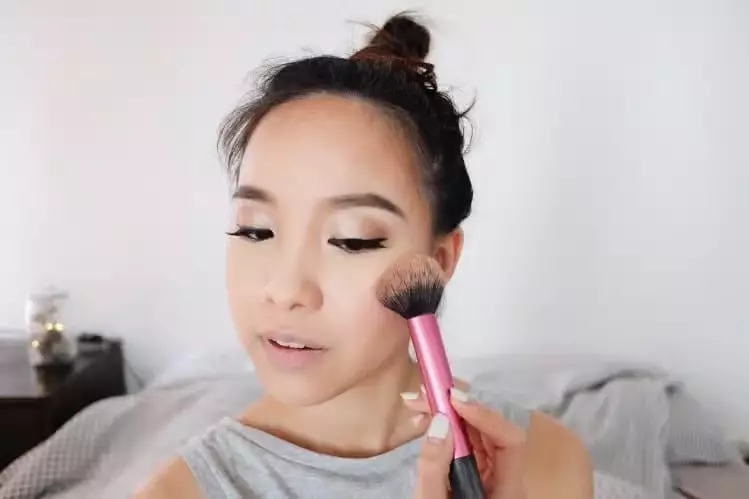Embarking on the journey to motherhood is an exhilarating yet complex process, often laden with joy, anticipation, and sometimes worry. As women navigate this transformative phase, understanding and managing environmental factors that may affect fertility and pregnancy outcomes is crucial. With rising awareness about toxins and chemicals that could jeopardize maternal and fetal health, attention to this aspect of wellness has never been more critical. Experts agree that being proactive can significantly contribute to a healthier conception journey, leading to positive outcomes for both mom and baby.
Caution with Cosmetics: The Paraben Predicament
One area many women overlook is their daily skincare and beauty routines, filled with products boasting enticing scents and flawless finishes. However, these cosmetics often harbor troublesome chemicals known as parabens—preservatives designed to extend shelf life but potentially detrimental to reproductive health. Renowned wellness expert Dr. Aaliya Yaqub warns that these additives mimic estrogen, which can interfere with egg development and potentially hamper fertility efforts. The presence of methylparaben, propylparaben, and their ilk in commercial products is widespread, thus necessitating vigilant label-reading. Transitioning to safer alternatives like Honest Beauty may mean sacrificing longevity in makeup, but prioritizing health is the ultimate win.
Revisiting Caffeine Consumption
Caffeine is another common element that requires thoughtful consideration. While the prevalence of coffee culture can be overwhelming, Dr. Kimberley A. Thornton, a reproductive endocrinologist, suggests that moderation is key in this area. Although research leans toward caffeine consumption being relatively safe in limited quantities (under 200mg daily), potential associations between high caffeine intake and complications such as miscarriage provoke caution. Smarter choices like switching to decaf or herbal teas can help women manage their intake effectively as they approach pregnancy.
The BPA Conundrum: Breaking Free from Plastic
Bisphenol A (BPA) is a chemical that has garnered significant scrutiny for its role in impairing reproductive health. Found in various plastic products, BPA can leach into food and beverages, especially when heated, posing potential risks during conception and pregnancy. To minimize exposure, experts highlight the importance of changing everyday habits. From avoiding microwaving plastic containers to selecting glass or stainless-steel alternatives, women can successfully thwart the lurking dangers of BPA. It’s a simple yet transformative practice toward safeguarding baby’s future.
Skincare Safeguards: Seeing Beyond Retinoids
Many women indulge in anti-aging skincare regimes, blissfully unaware that certain key ingredients can pose risks during preconception and pregnancy. This includes retinoids—linked to Vitamin A—that may be absorbed transdermally and threaten developing embryos. While long-term beauty effects might seem appealing, leading experts strongly recommend eliminating such products to embrace safer options like glycolic acid and Vitamin C. In maintaining glowing skin, one can achieve beauty without compromising the health of their future child.
Quitting Smoking: A Critical Commitment
Another crucial aspect of preparing for a healthy pregnancy is addressing smoking habits. Dr. Thornton highlights significant risks associated with smoking—not just for the smoker but also for the developing fetus. Smoking accelerates egg depletion and shortens reproductive lifespan, presenting clear pathways to hardships when attempting to conceive. For those struggling with nicotine dependence, resources like SmokeFree.gov provide support and guidance crafted specifically for women during this sensitive phase.
Hair Dyes and Fragrance Fractals: From Garden to Glow
When it comes to beauty maintenance, hair dyes warrant attention. Specifically, women aiming for pregnancy are advised to steer clear of harsh chemical dyes that can penetrate the scalp and enter the bloodstream. Opting for vegetable-based dyes or safer techniques, such as highlights, can effectively minimize harmful exposure. Furthermore, avoiding synthetic fragrances—common culprits in personal care and household products—can alleviate potential hormonal disruptions. Alternatives like pure essential oils can lend grace without risking health, although it’s always wise to confirm which scents are pregnancy-friendly with a healthcare professional.
Creative Solutions for Nail Care and Paint Fumes
What about managing nail care? Women should prioritize their health by selecting nail polishes free of toxic ingredients and utilizing non-acetone removers. Furthermore, exposure to paint and fumes in home renovation is another area of concern with studies indicating higher links to complications regarding pregnancy. It’s prudent to delegate painting tasks during the first trimester to maintain safe and healthy conditions for the incubating baby.
In this pivotal time leading to motherhood, women hold immense power in their choices. By being diligent about what they put in, on, and around their bodies, they pave the way for healthier outcomes, effectively shedding the toxin-laden past and nurturing a promising future.

